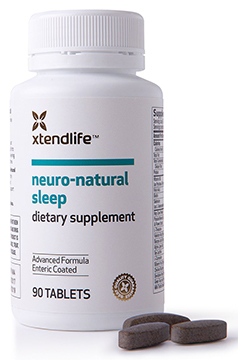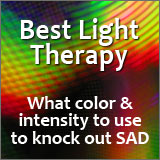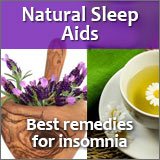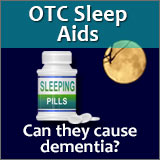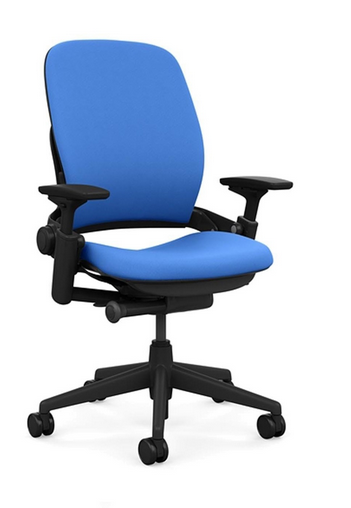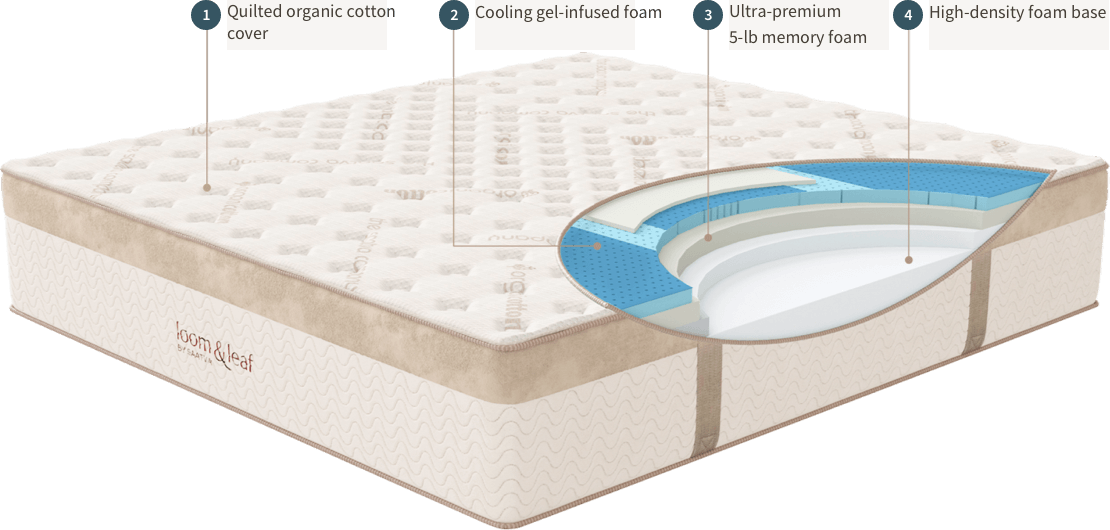Can't Sleep? Let's Look At What is Insomnia, Types of Insomnia, and What Causes Insomnia
There are dozens of potential reasons why you can't sleep.
To discover those reasons—and solve them—I think we first have to be clear on what is insomnia...and what are the types of insomnia.
Then we can look at the specific causes of why you can't sleep. From there, we can then look for treatment options.
What is insomnia?
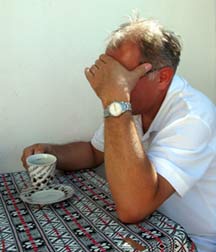
The American Academy of Sleep Medicine has specific guidelines for a definition of insomnia.
So if you told a sleep doctor you had difficulty with falling asleep (sleep onset insomnia)...or difficulty staying asleep (sleep maintenance insomnia)...or waking up too early...or poor quality sleep, you could have insomnia.
However, to be a diagnosis of insomnia, you would also have to meet two more criteria:
- Your sleep difficulty occurs even when the opportunity and circumstances for sleeping are available.
- There is some form of impairment to your daytime living. Perhaps fatigue, lack of concentration, a decline in energy or motivation, poor school or work performance, drowsy driving, moodiness, tension, headaches, upset stomach, and worrying about sleep.
Next, if you can't sleep, a sleep clinician would interview you and also look at your sleep diary to determine what type of insomnia you have.
The types of insomnia
The first is acute insomnia, also known as transient insomnia. Almost everyone on the planet at some time in their life has had this type of insomnia. Acute insomnia is insomnia that lasts for a few days or weeks and then resolves itself. It's temporary.
If the acute insomnia occurs again from time to time, it's called intermittent acute insomnia.
Acute insomnia can be caused by stress, jet lag, noise, too hot or too cold temperatures, or a life change.
As an example, when my oldest brother died unexpectedly and suddenly at age 54 of an undiscovered brain tumor, our family was crushed. My mother even suffered three small strokes over it and never recovered.
The grief I experienced was overwhelming. For about a week, I wandered the halls of my home at night, unable to fall asleep.
I was suffering from acute sleep onset insomnia. When I did fall asleep, I would wake up in the middle of the night and could not get back to sleep. So I also had acute sleep maintenance insomnia. Having a combination of insomnias is called mixed insomnia.
But life goes on. I cried a bit. And my acute insomnia resolved itself after a week or so of intense grief.
There are a couple of lessons here
First, if you have those occasional nights where you can't sleep, don't
worry about it. One big cause of insomnia is worry about not being able
to sleep.
For acute insomnia, I recommend you read my articles on How to Fall Asleep and How to Stay Asleep. Those sleep tips may work well for you.
During brief times of insomnia, do your best to eat right and exercise. In fact, one of the ways to overcome insomnia is to feed your body the nutrients it is craving.
You may also want to consider an excellent natural sleep supplement. Neuro-Natural Sleep that you see here is loaded with ingredients that have been formulated to promote healthier sleep patterns.
There are a wide variety of excellent health supplements at that website also.
Also during periods of insomnia, be careful driving or operating machinery until you get back on track.
Stay away from over the counter sleep aids that contain diphenhydramine and doxylamine. You can read my articles on those nasty drugs here.
As for sleeping pills for acute insomnia?
That's between you and your doctor. Sleeping pills are not my thing. You can read my article about sleep medications here. I also mention sleep medications below.
My personal feeling is, if you know your insomnia is short term, why mess with drugs that have potential problems? Once your acute insomnia is over, you'll be able to pay off your sleep debt fairly quickly with deep sleep.
The second lesson here is...
What if you only think you can't sleep? There are so many sleep rules these days about how many hours you need...or how fast you're supposed to fall asleep...or that you shouldn't wake up in the middle of the night.
But maybe some of these rules don't apply to you and you don't even have a "can't sleep" problem. For example, if you get 6.5 hours sleep per night, yet still feel great everyday, you probably don't have insomnia!
Maybe you only regularly need 6.5 hours of sleep to function well. As I mentioned above, for you to have a diagnosis of insomnia, it has to have a negative impact on your daily life. (Most people do need 7 to 9 hours sleep nightly, by the way.)
If it takes you 30 minutes to an hour to fall asleep, but that doesn't bother you and doesn't affect you the next day, then again, don't worry about it. Most people who can't get to sleep after 30 minutes, and this drives them nuts, should get up and do something until they're sleepy again.
The real problem with acute insomnia is if it becomes chronic.
Chronic insomnia is insomnia that occurs several nights a week and lasts for at least a month. This is the type of insomnia that millions of people who can't sleep are contending with. And it can be difficult to treat.
What causes insomnia
Now, to further understand why you can't sleep, we have to drill down to what causes insomnia. Sleep researchers do this by classifying the two types of insomnia: primary and secondary.
If you have primary insomnia, it means there is no visible obvious cause, such as a medical or mental issue, or a change in your environment.
Secondary insomnia is a type of insomnia that is caused by a medical, mental, or an environmental issue.
For example, if you have a herniated disk, the back pain could be why you can't sleep. If you have hot flashes and night sweats, those are secondary causes of insomnia. My grief I mentioned above was a secondary insomnia that caused acute insomnia.
Secondary insomnia can be easier to treat than primary. The reason is because if you resolve the condition that causes secondary insomnia, then whichever type of insomnia you have—acute or chronic—often goes away.
Natural treatments versus prescription sleeping pills
In my next article, which I hope to post in a day or so, I'm going to list dozens of the secondary causes of insomnia. My goal is to take many items on that list and write detailed articles about them. For example, pain, fibromyalgia, and stress. Then I will cover natural treatments that help treat them.
Why natural treatments?
Even though sleep medications are safer than they were in the past, there is tremendous potential for abuse of these drugs.
Also, there is evidence that hypnotics (prescription sleeping pills) cause cancer. In addition, a recent study estimated that in 2010, sleeping pills may have been responsible for between 320,000 and 507,000 deaths.
Considering that these drugs are a doctor recommended course of action for treating acute or chronic insomnia disturbs me.
Subscribe to my RSS feed, the orange button up above near the bottom of the left menu. If you can't sleep, I'm going to do what I can to help you.
More Articles You Will Like
Go to 4 Essential Facts About Insomnia
Go to Trouble Staying Asleep? You May Have Sleep Maintenance Insomnia
